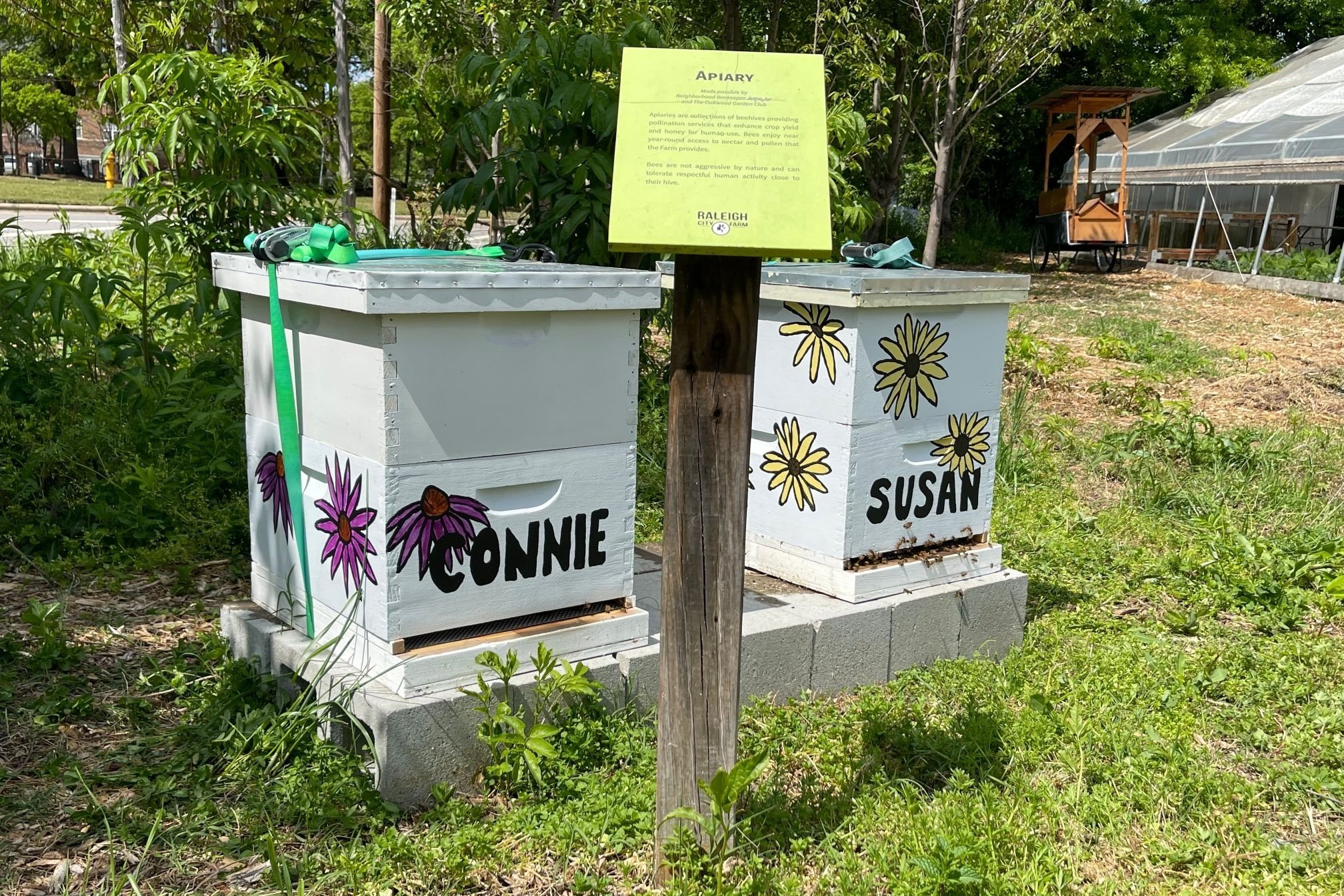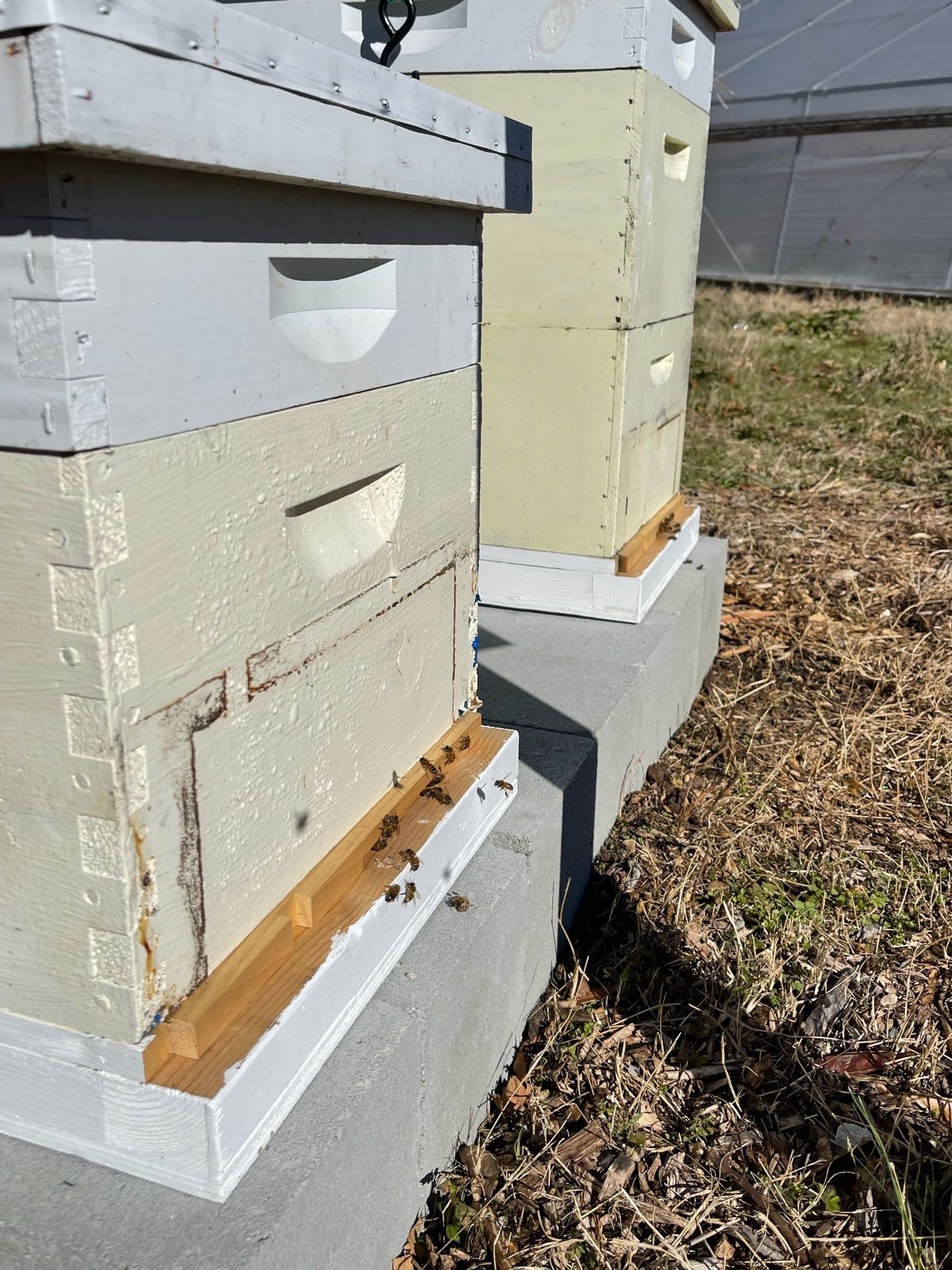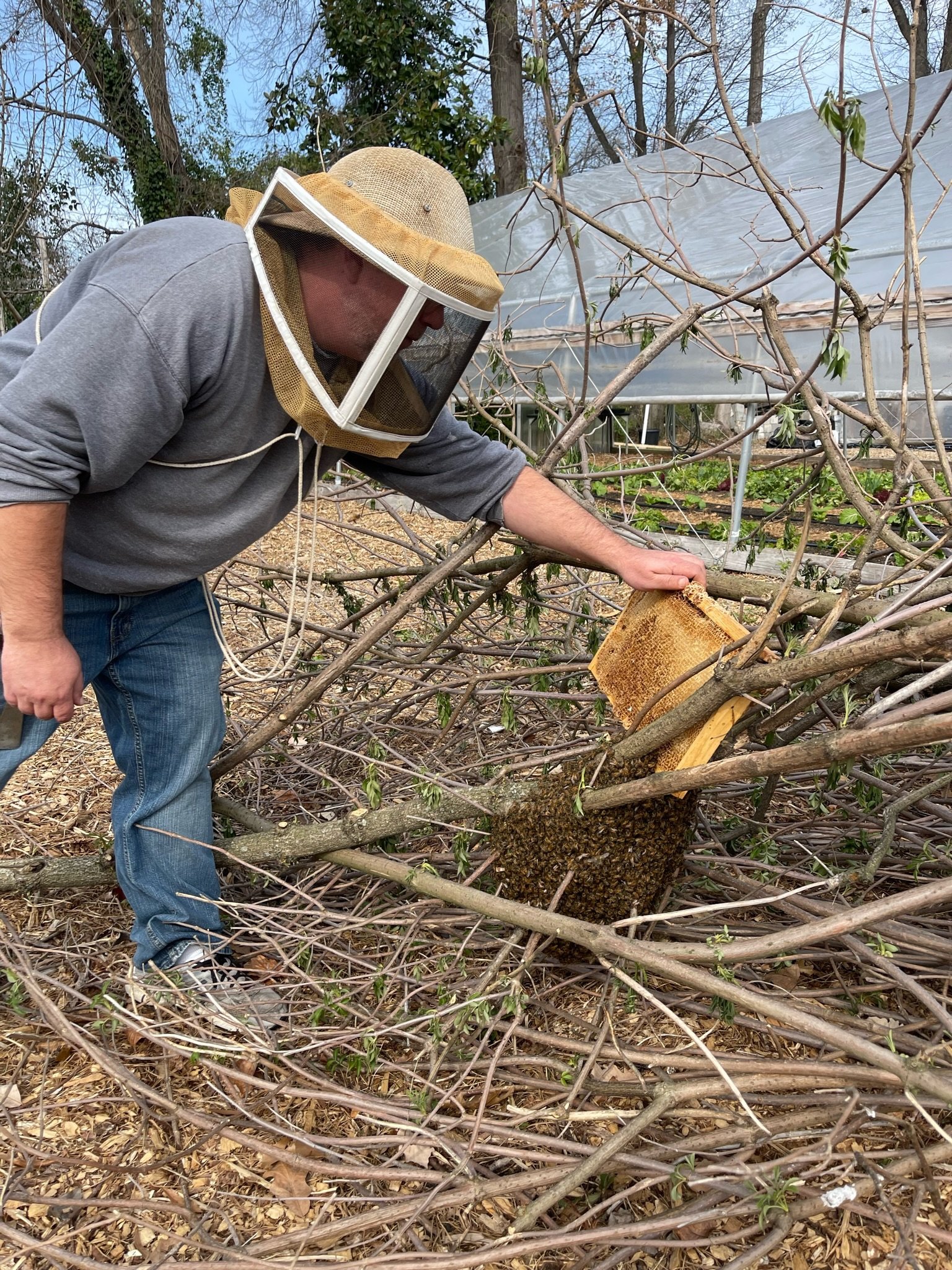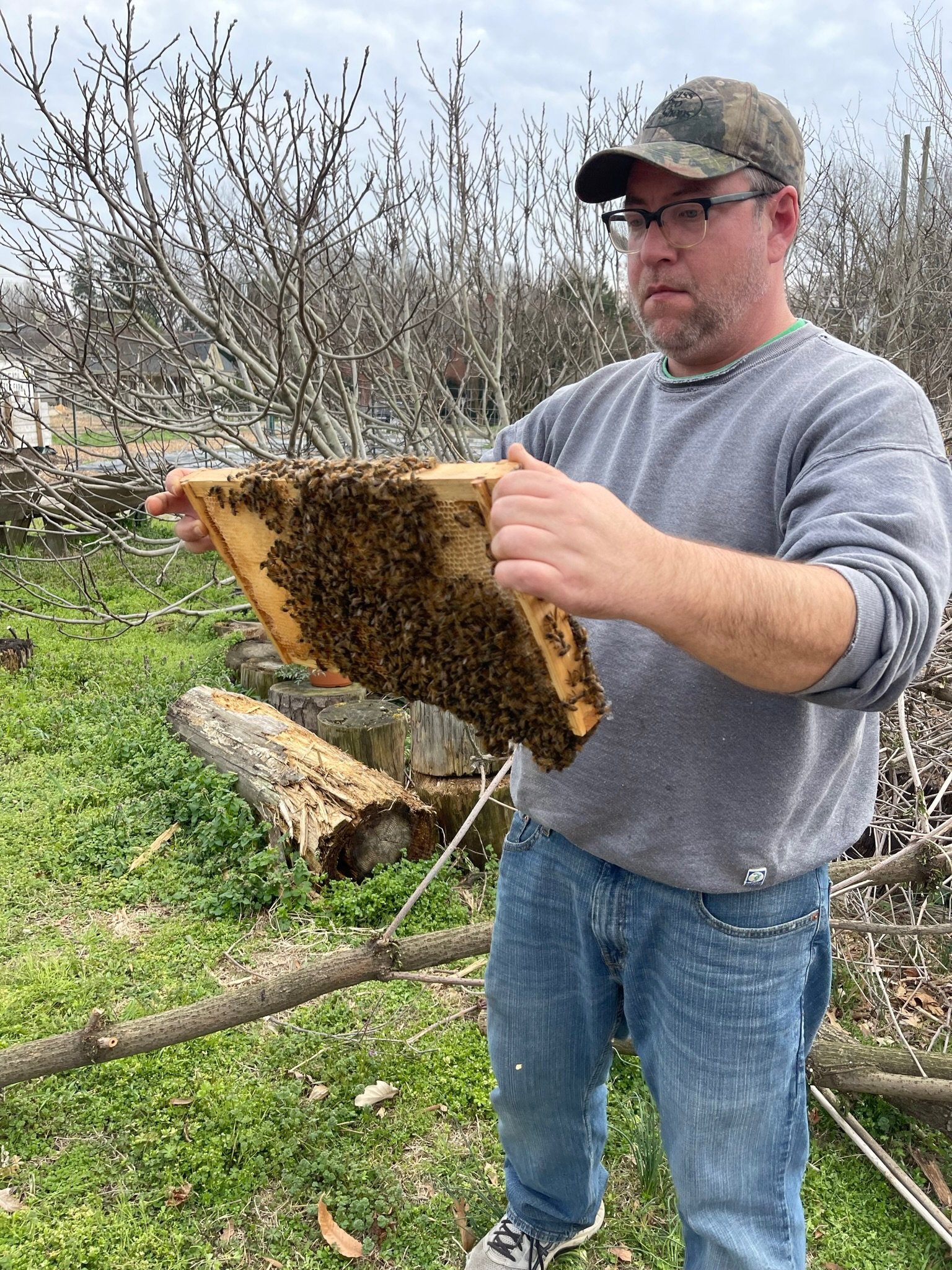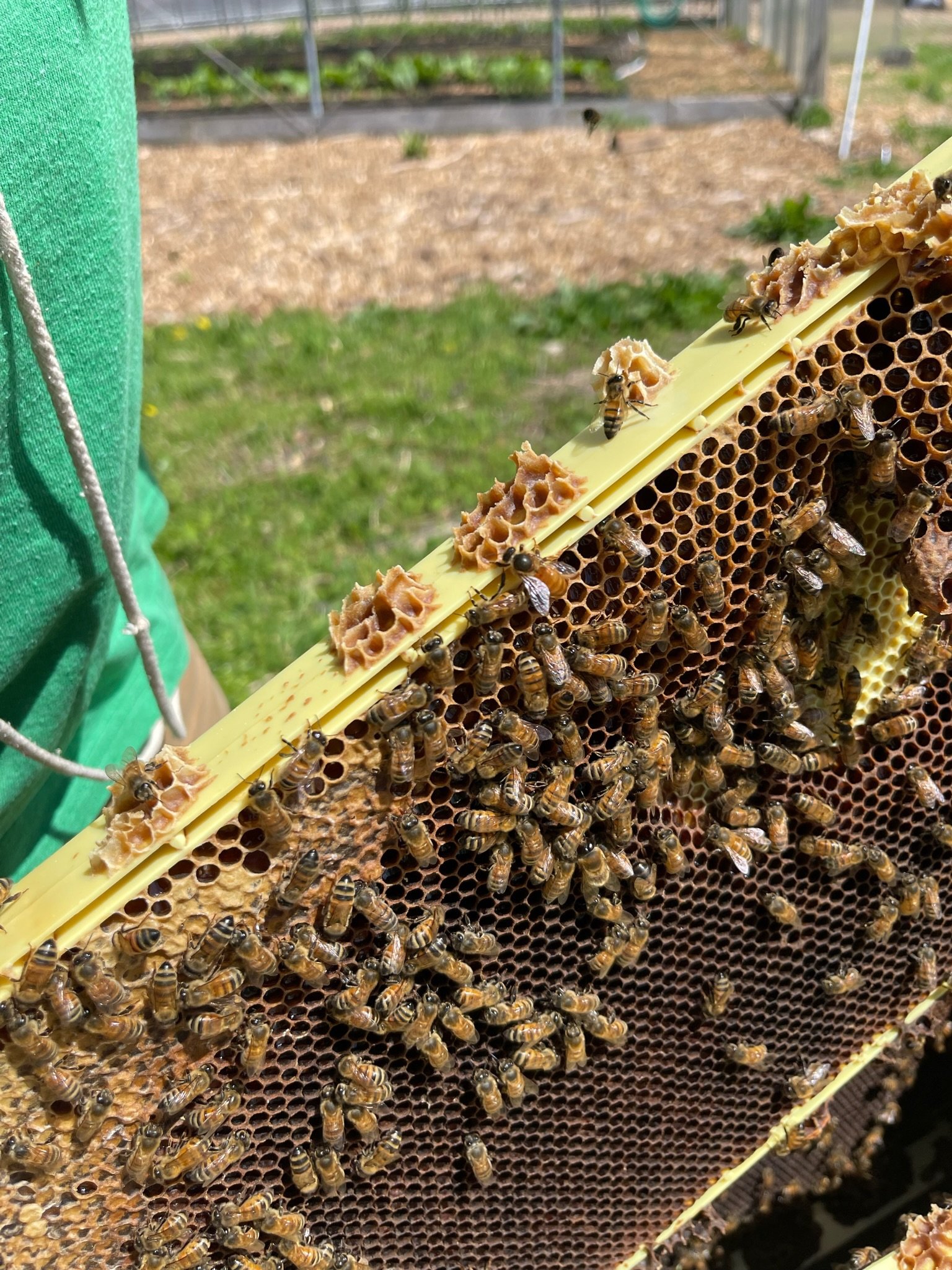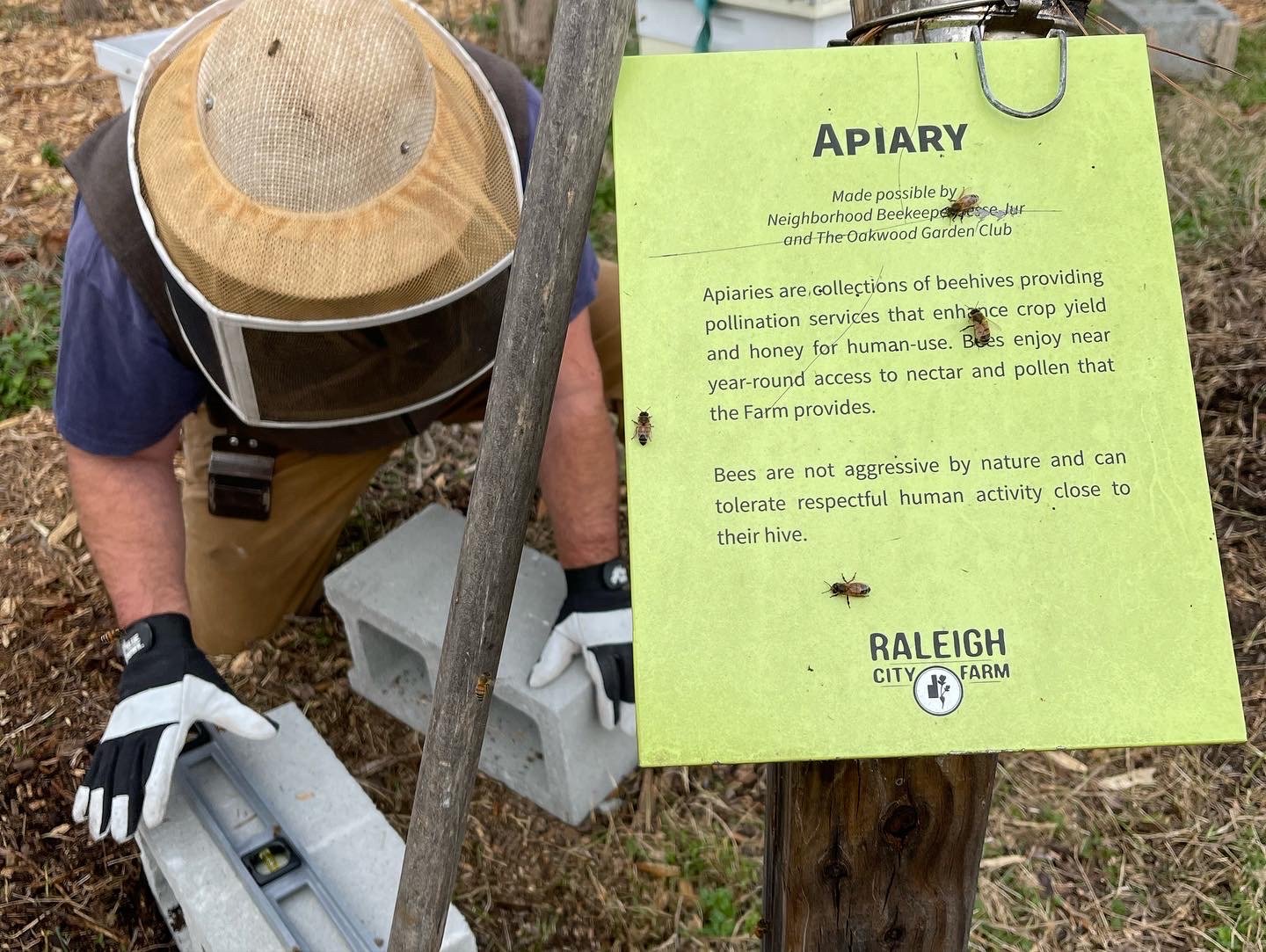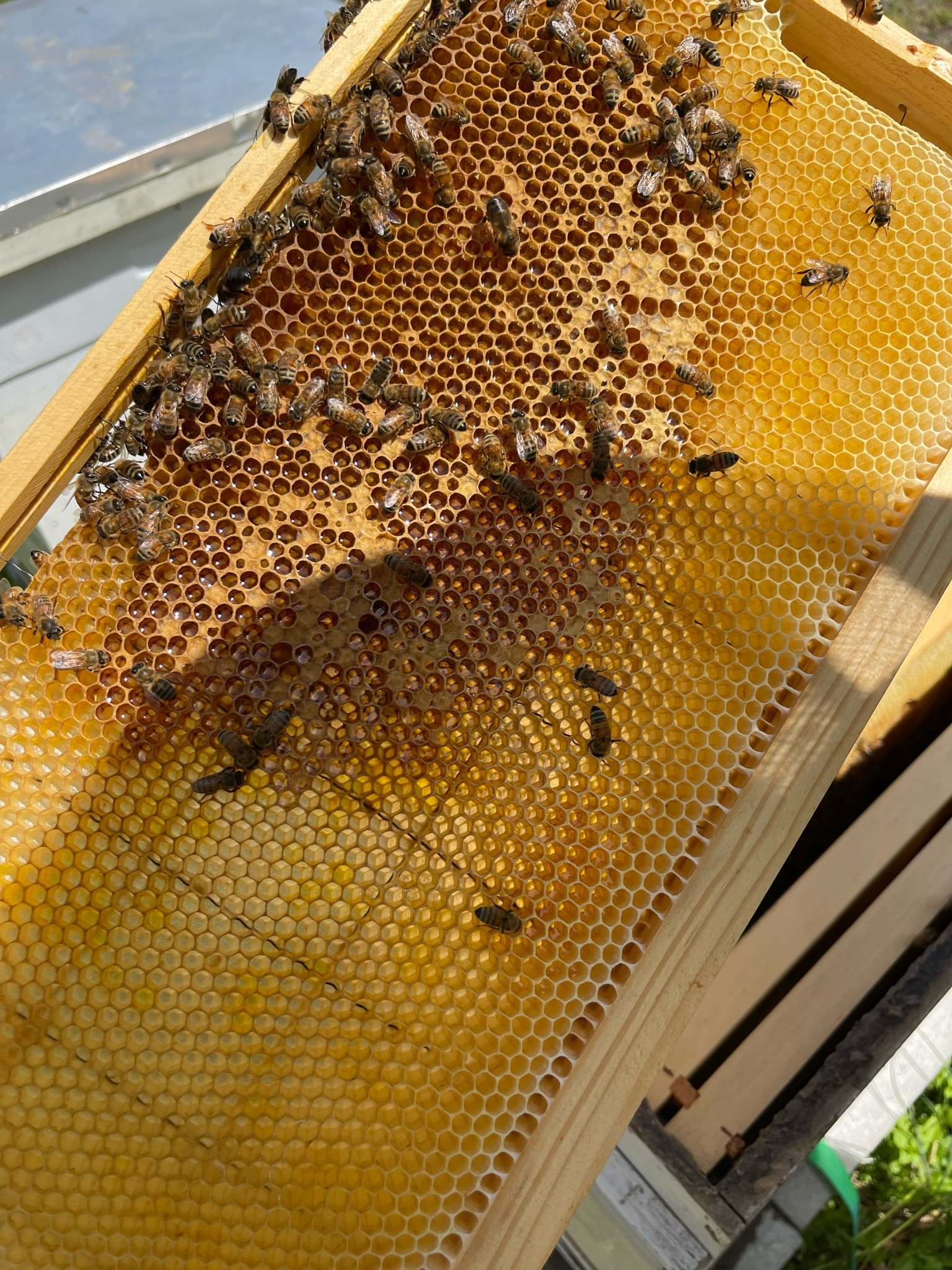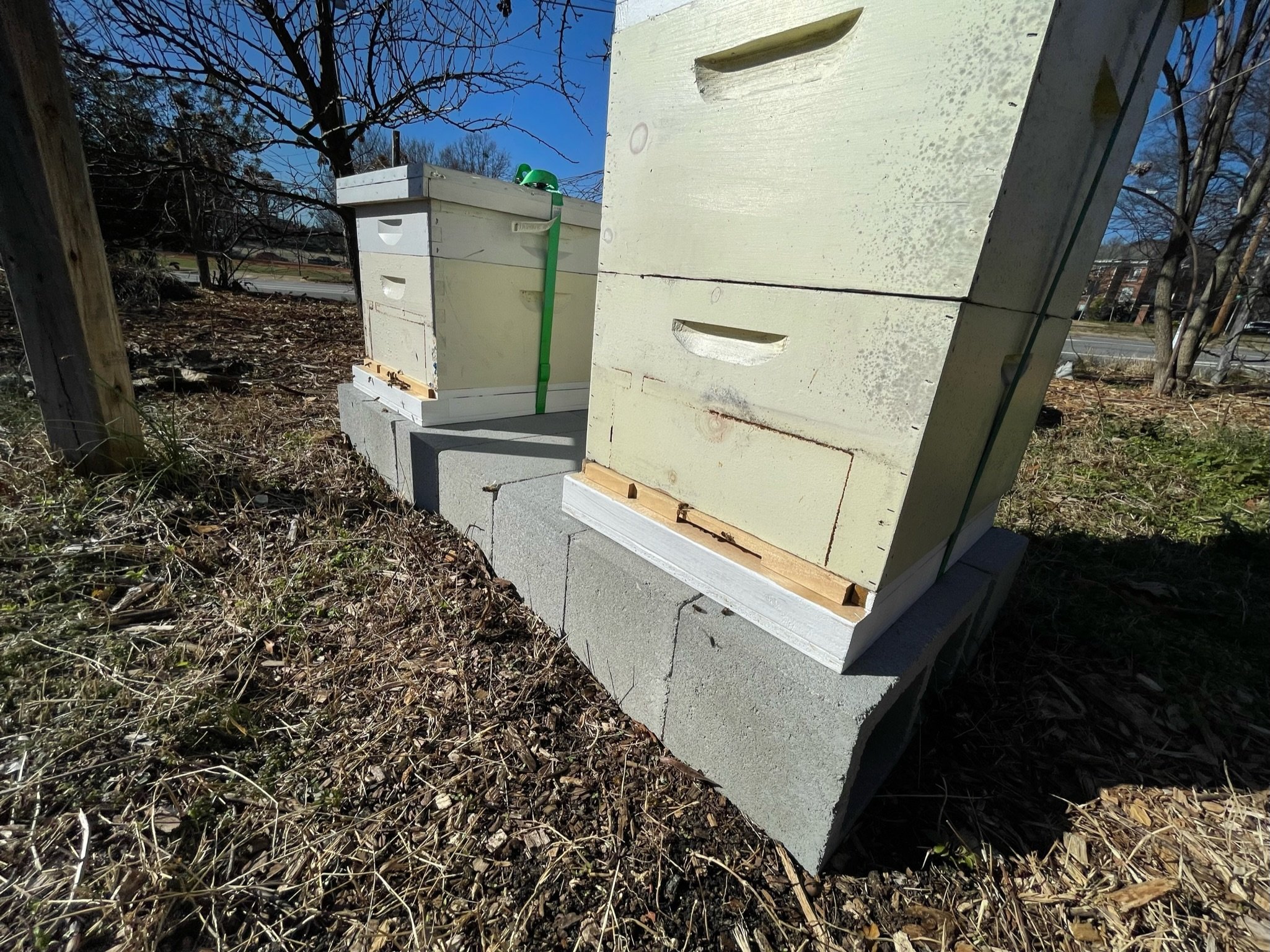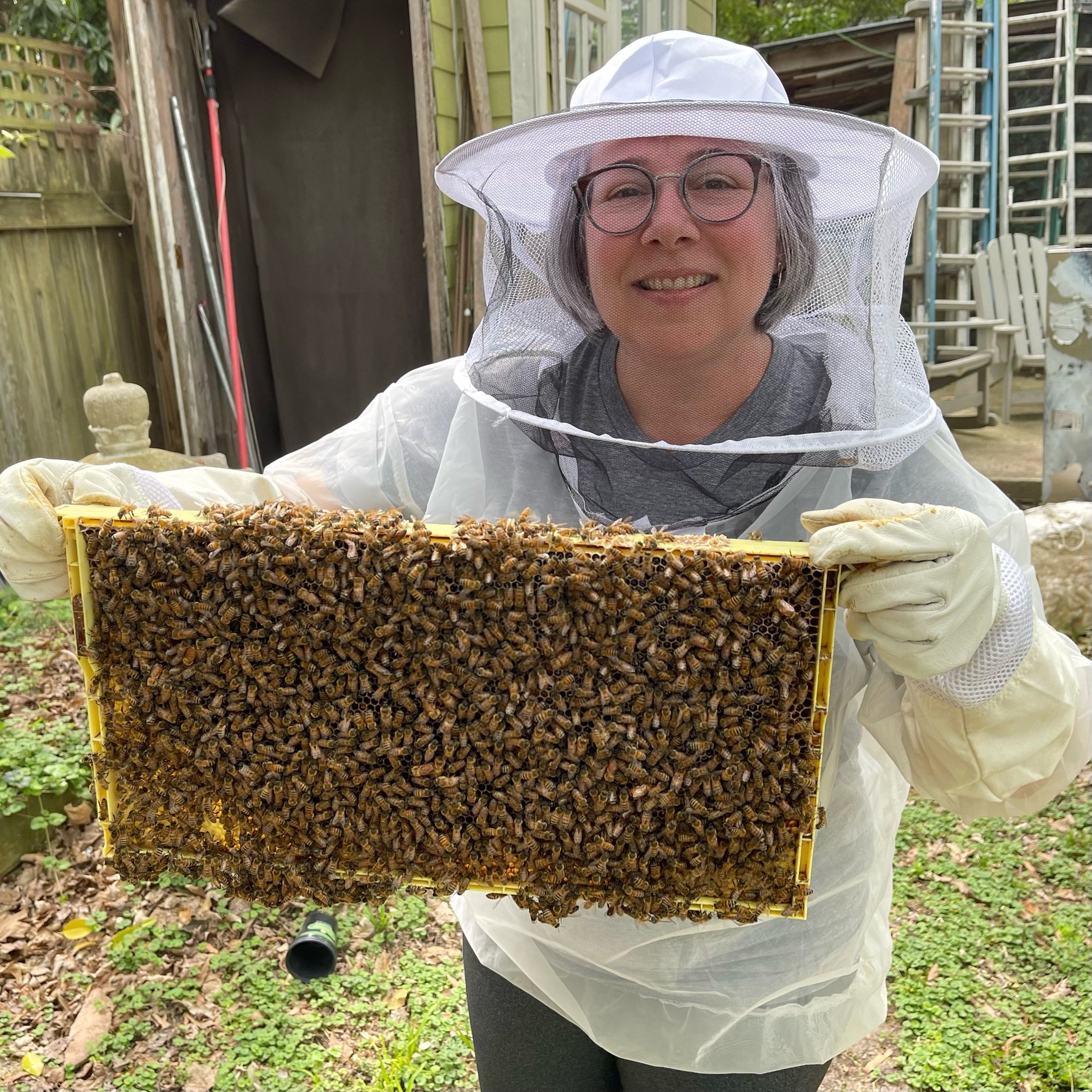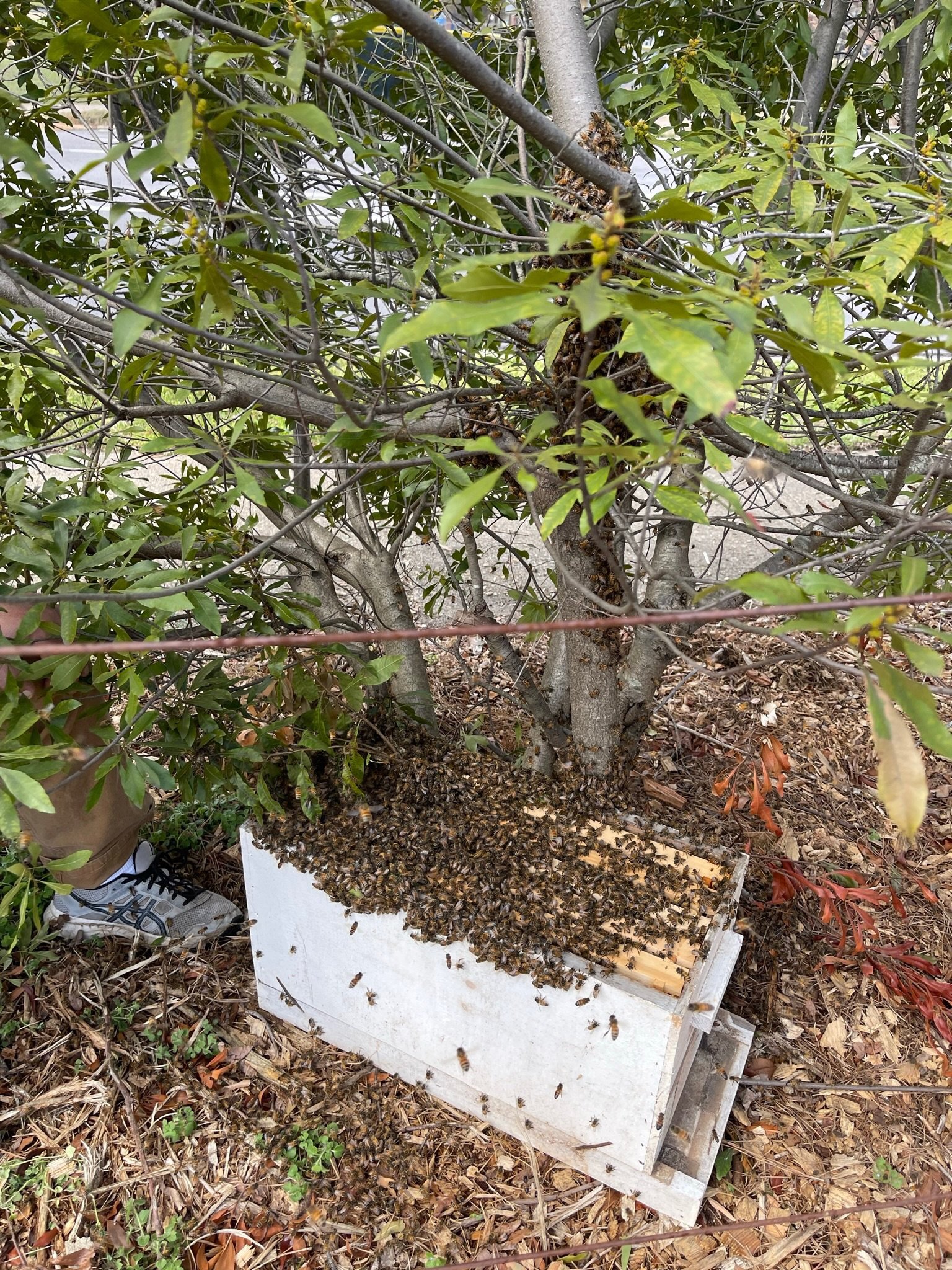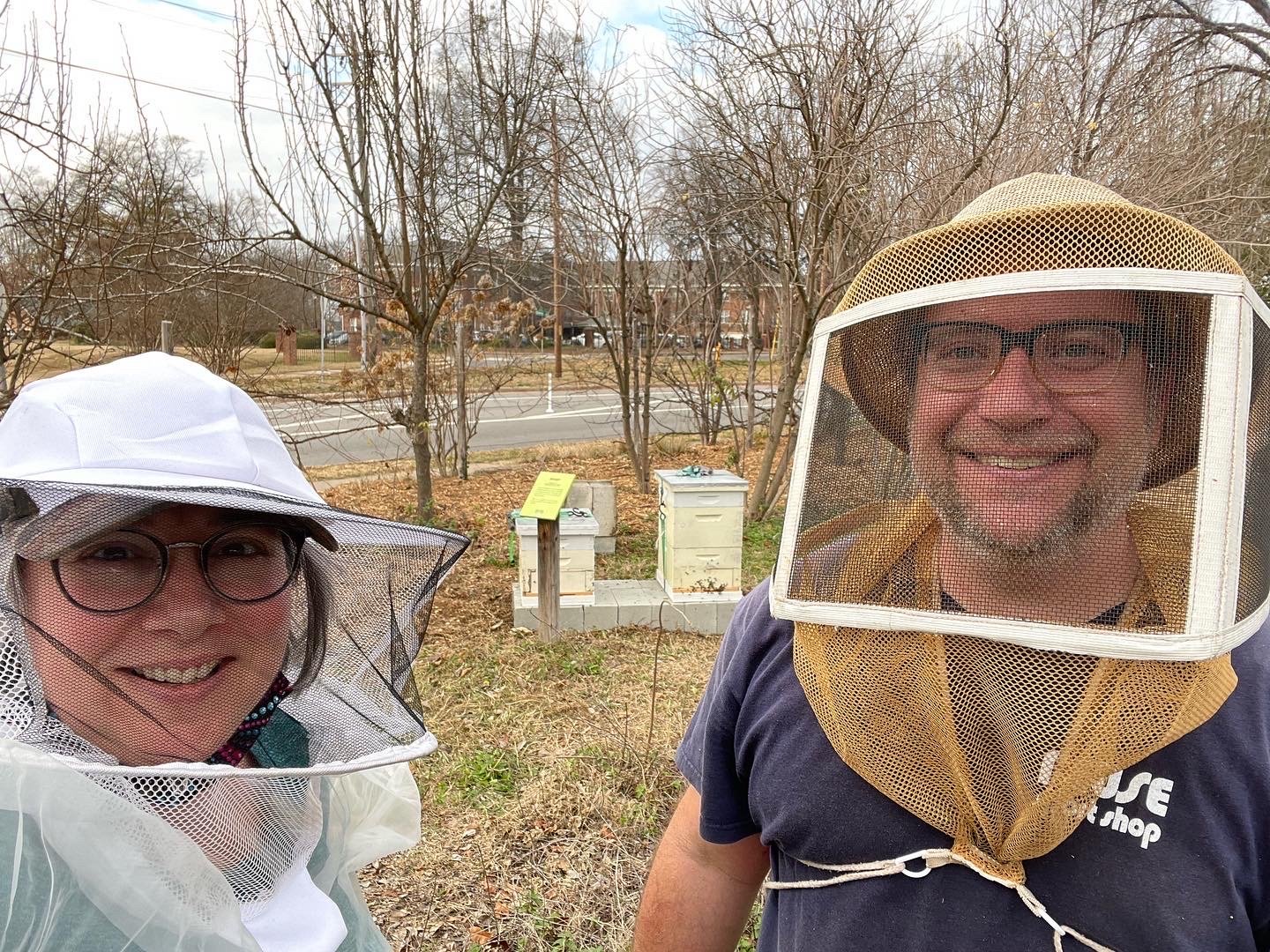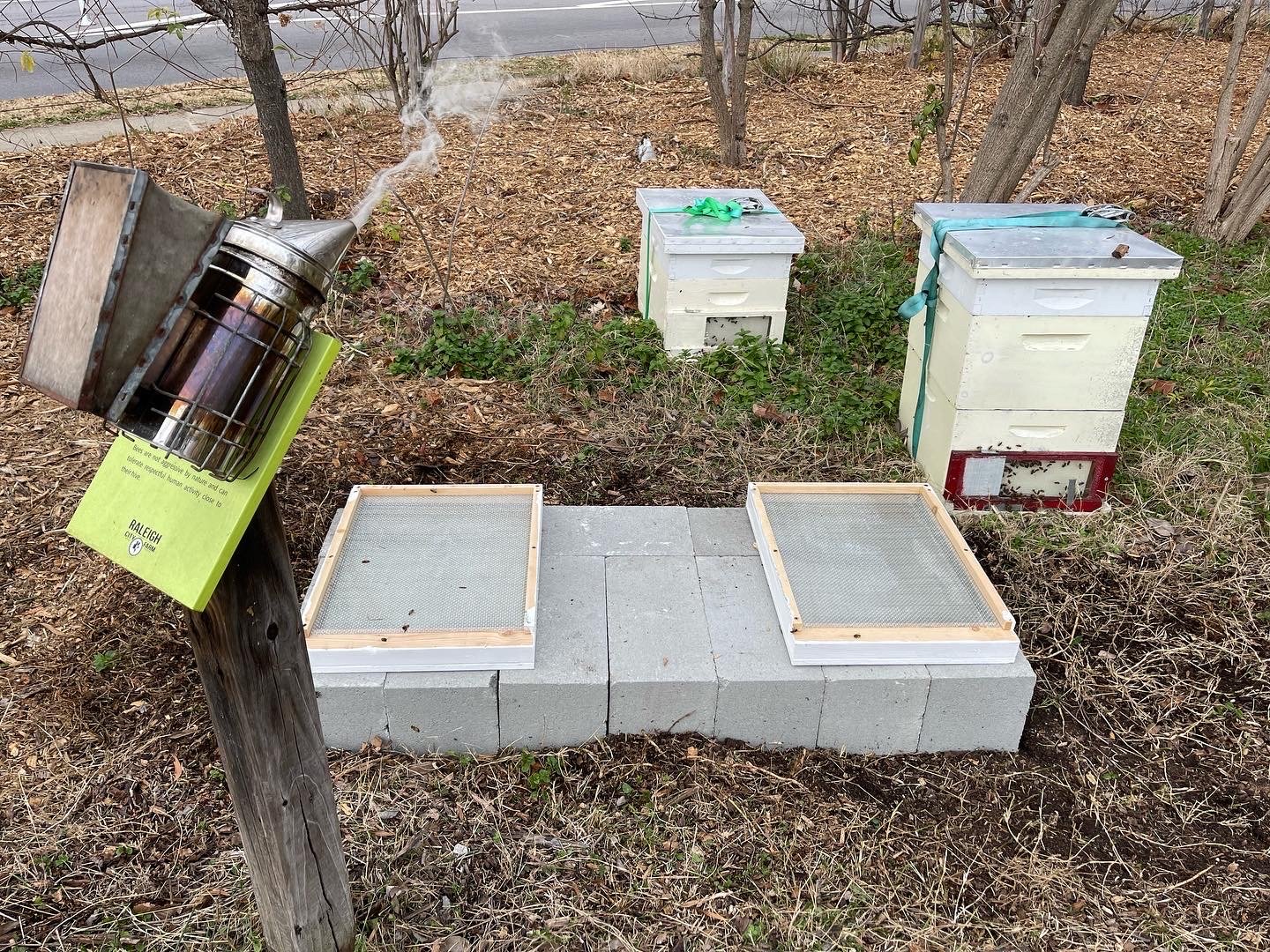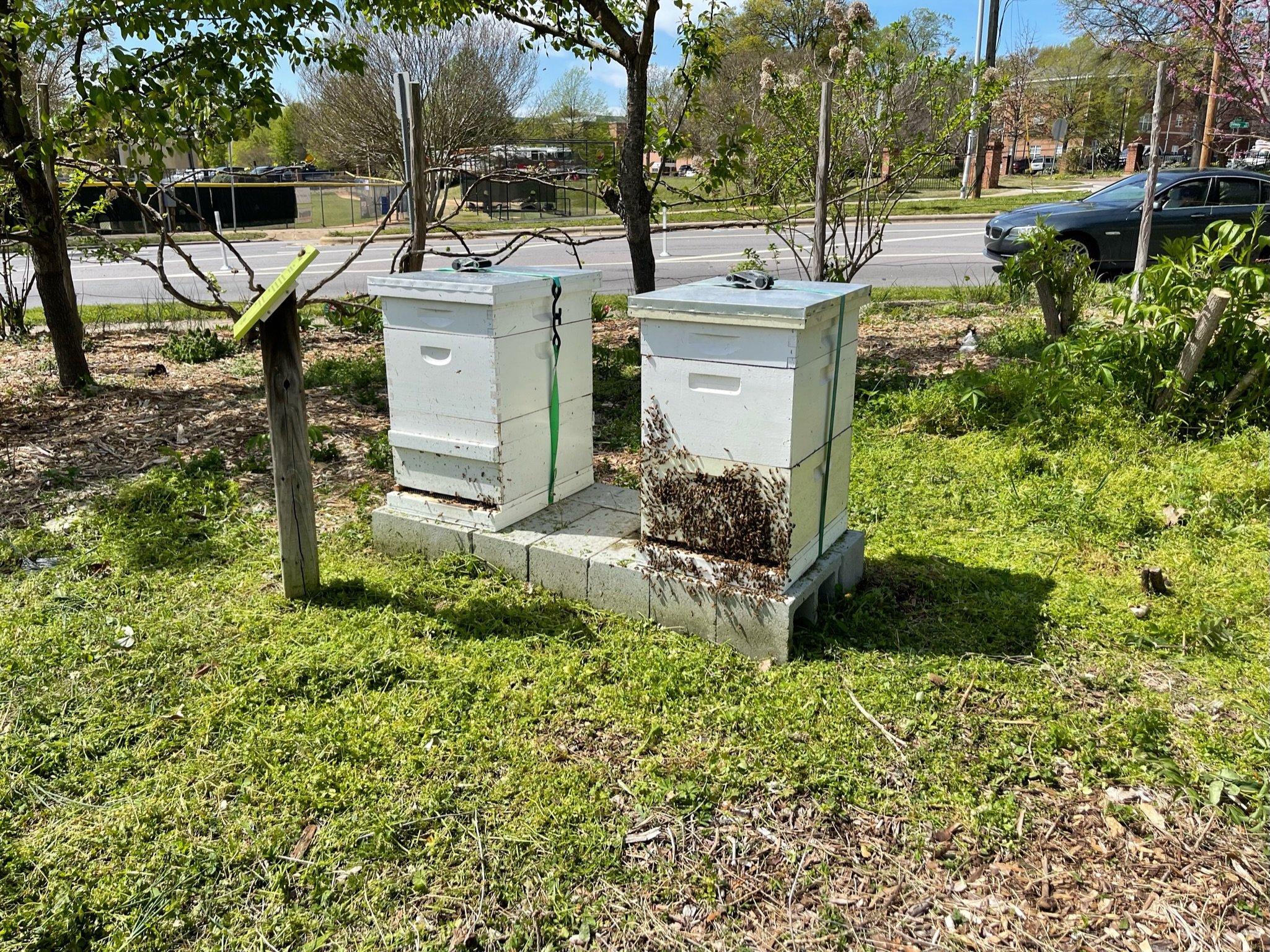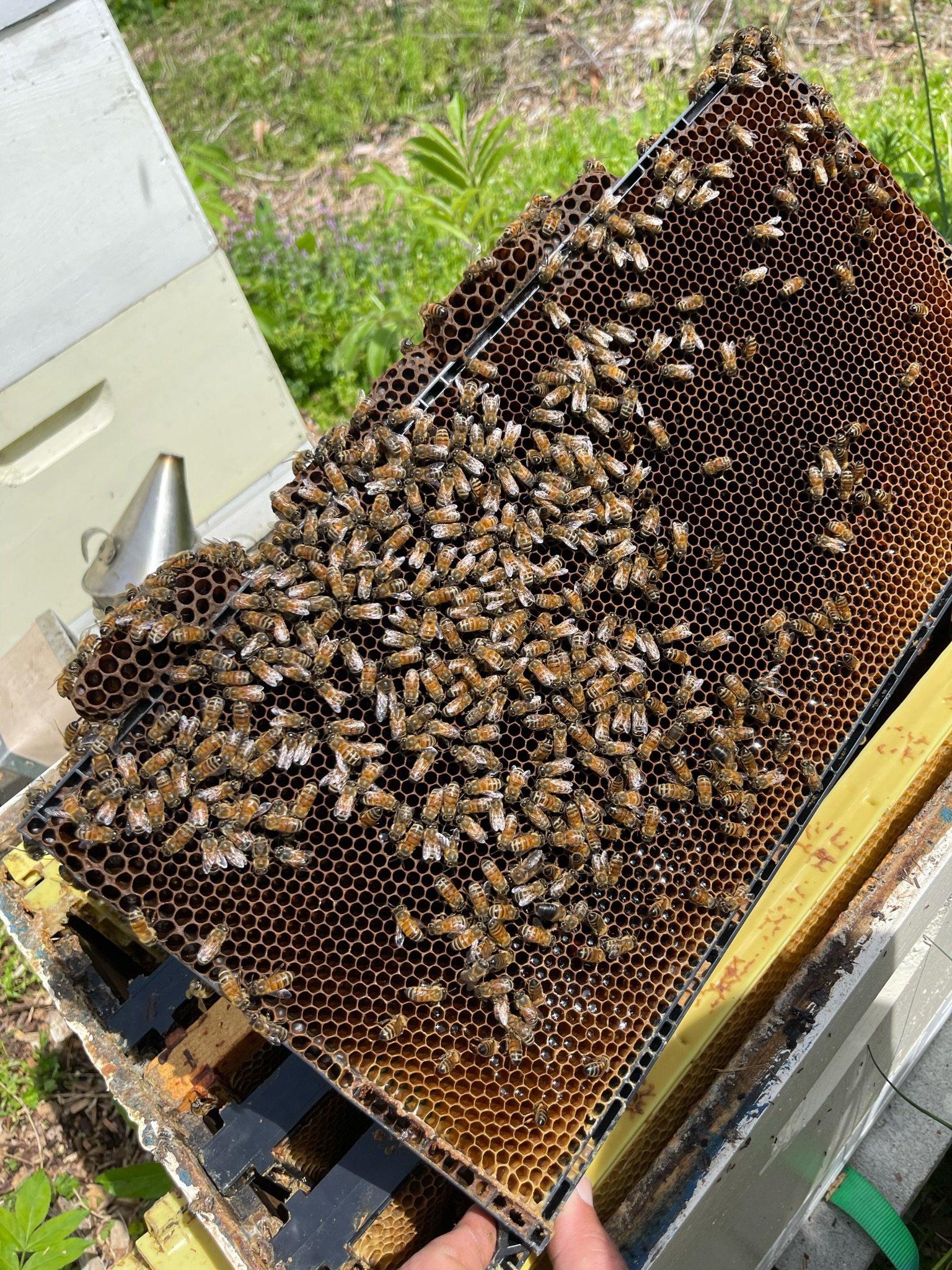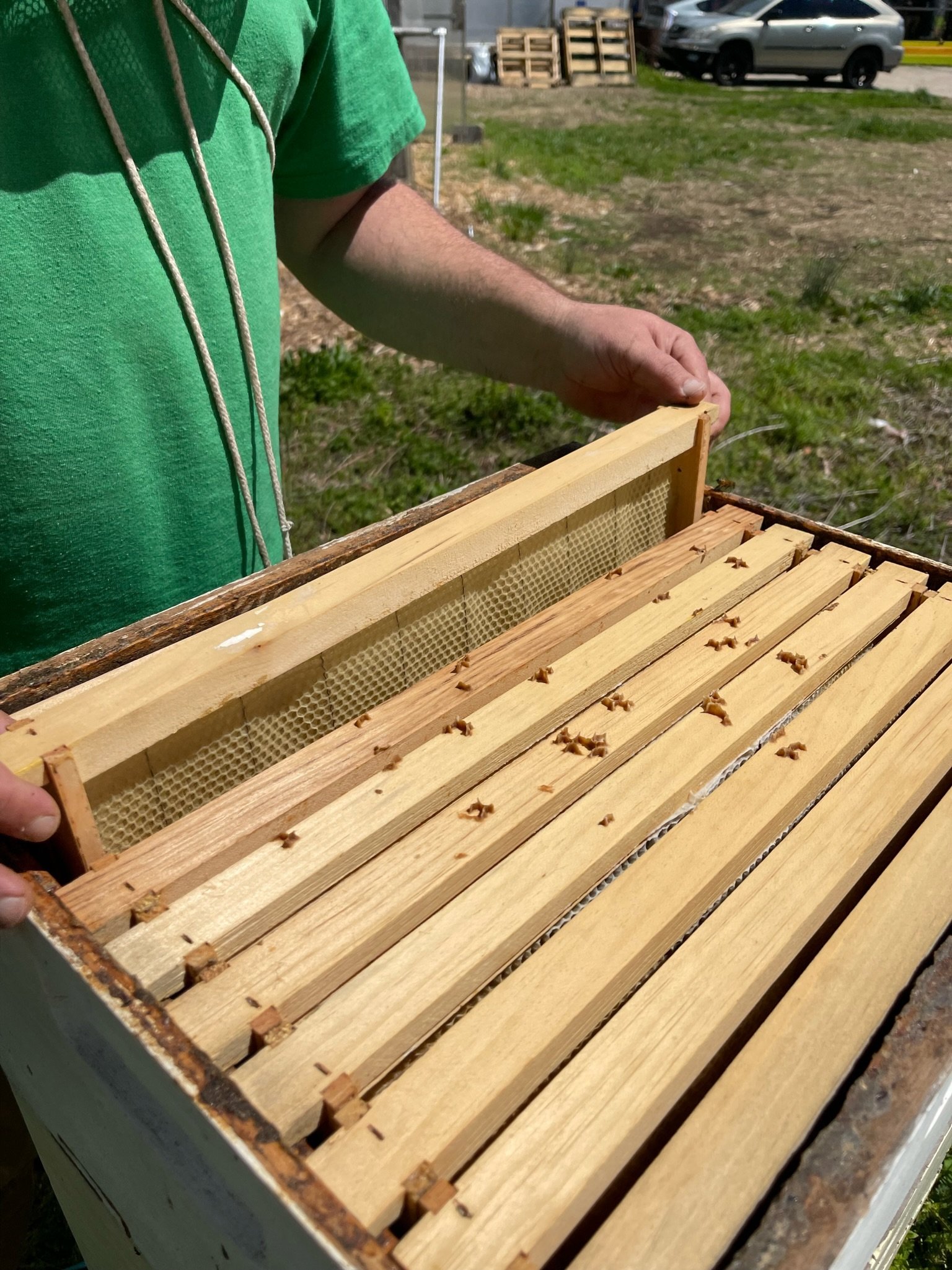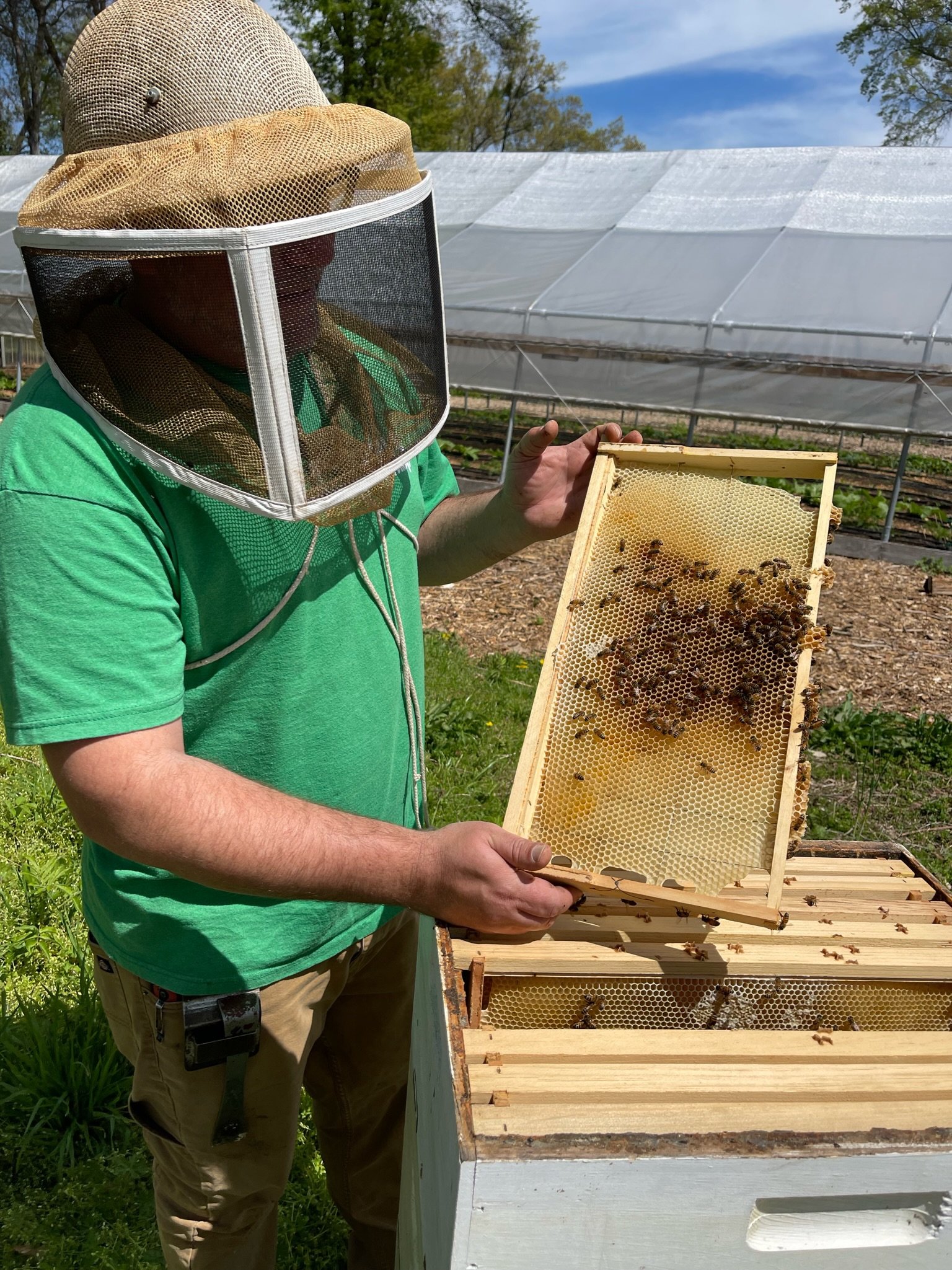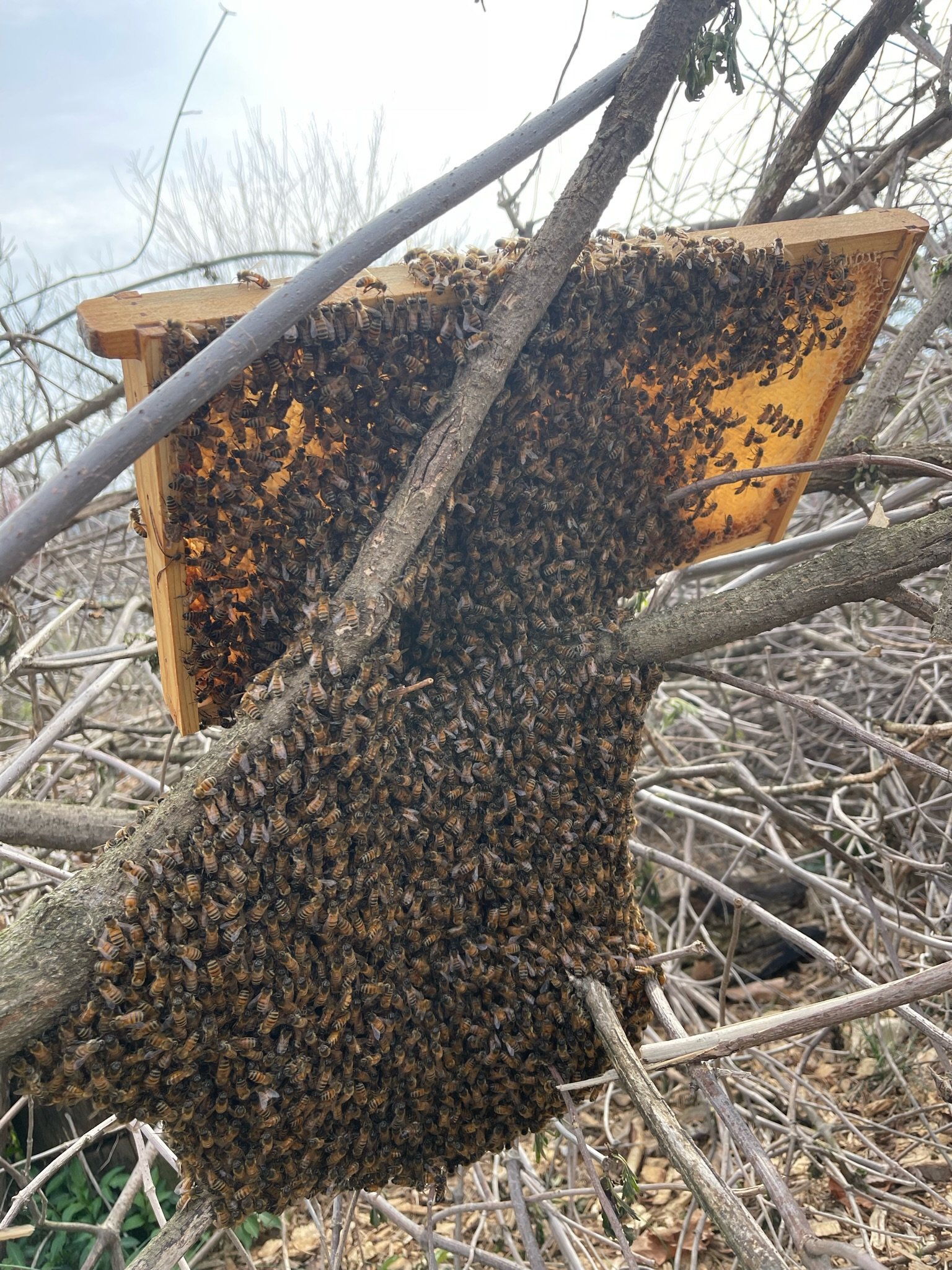Raleigh City Farm is committed to pollinators through plantings, education, and maintaining honeybee hives in our apiary.
Bees have been stewarded at Raleigh City Farm by a number of dedicated volunteers beginning with Alice Hinman of Apiopolis. Our Apiary was formally established in March 2016 thanks to support from the Oakwood Garden Club and neighbor/beekeeper Jess Jur.
In November 2019 another neighborhood beekeeper, Nic Eason, brought new bees to the farm and took over apiary responsibilities.
Nic shared his fascination here, "Of all the domesticated animals, honey bees are among the most unique and different. They are insects so they are 100% instinctual. They don't have personalities or emotional depth (like you and your dog); they just have instincts. That's an interesting attribute when combined with the fact that a bee colony is a type of super-organism. In terms of their life cycle, the entire colony is the organism. Each colony is a giant metropolis/family with its own drama. They have famines, epidemics, demographics and infrastructure."
In December 2021 new caretakers began working with the farm bees. With funding from Oakwood Garden Club, experienced beekeeper Ben Crawley, aka “Mr. Buzz” and neighbor/beekeeper Dana Deaton began by giving the apiary a much needed cleanup by installing new bases, removing and replacing old equipment, and getting to know the two hives.
This spring of 2022, we’ve been thrilled to see the colonies emerge from winter healthy and strong, so we decided it was time for them to have names! Introducing Connie and Susan, the two apiary hives. They are named after two of the bees favorite flowers, Purple Coneflower and Black-Eyed Susan.
“Connie” The Connie hive is named after beneficial pollinator Purple Coneflower (Echinacea purpurea). This beautiful perennial attracts honeybees, hummingbirds, and butterflies! It can be bought as a seedling at most garden stores.
“Susan” The Susan hive is named after Black-eyed Susan (Rudbeckia hirta). The black-eyed susan requires very little care and provides a great source of pollen for honeybees. It can grow well in dry soil and the mature plants are able to tolerate clay, rocky soil, heat, and drought.
Ben and Dana will continue to make improvements to the apiary so watch the hives this summer if you visit the farm. You can also follow the Raleigh City Farm blog and social media for more apiary related posts, and learn more about the fascinating world of honeybees with us.
Follow along on Instagram:


